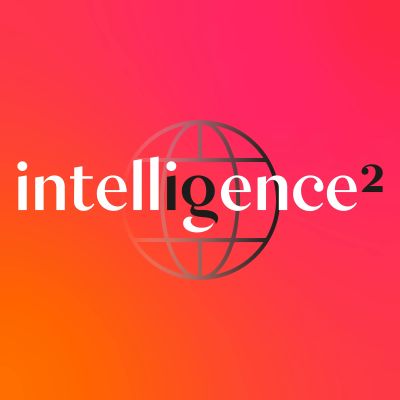Intelligence Squared is the home of lively debate and deep-dive discussion. Follow Intelligence Squared wherever you get your podcasts and enjoy four regular episodes per week taking you to the heart of the issues that matter in the company of the world’s great minds. We’d love to hear your feedback and what you think we should talk about next, who we should have on and what our future debates should be. Send us an email or voice note with your thoughts to podcasts@intelligencesquared.com or Tweet us @intelligence2. And if you’d like to support our mission to foster honest debate and compelling conversations, as well as ad-free podcasts, exclusive bonus content, early access and much more, become a supporter of Intelligence Squared today. Just visit intelligencesquared.com/membership to find out more.
http://www.intelligencesquared.com
Anne-Marie Slaughter on Our Hyper-Networked World
Anne-Marie Slaughter is one of the world’s top foreign policy thinkers, admired by influential global leaders such as Joe Biden, Condoleeza Rice and Eric Schmidt. A former senior adviser to Hillary Clinton in the State Department, she hit the headlines in 2012 when she published an article in The Atlantic called ‘Why Women Still Can’t Have It All’. The piece went viral and sparked off a massive debate about the future of work-life balance. But long before this, Slaughter was hailed in political circles for her understanding of the emerging world of networks. She was among the first to see how networks are overturning traditional hierarchies, upending international diplomacy and transforming patterns of global power and politics. Now once again, with the launch of her new book 'The Chessboard and the Web', she has moved ahead of conventional thinking and came to the Intelligence Squared stage to share her insights. The power of networks, she explained, has grown so quickly with the advance of digital technology that we have barely begun to fully understand it and see how it can transform our world. Take government, which has traditionally been a vertical and closed system (apart from periodic elections). Why not embrace a ‘wiki’ model of power, using digital networks to make government decision-making truly open and participatory? In other words, government with the people rather than government for the people. Or take the tech world, which has become dominated by a handful of giants with closed business models. Counterintuitively, Slaughter will argue, these companies would benefit if they were to loosen up and open their platforms to other parties, thereby benefiting from the robustness of the whole network, rather than concentrating power in a single hub. Or look at how ordinary citizens are using peer-driven networks, such as Occupy or Black Lives Matter, to effect change in society, or using data to help the authorities with crisis communications in disaster zones. At a time when so many of us feel that our voices aren’t being heard where it matters, could progress lie in Slaughter’s prescription for a more open, participatory world where governments and citizens, armed with 21st century technology, come together to forge a new social and political contract? Slaughter was joined by former Foreign Secretary Jack Straw and connectivity expert Geoff Mulgan. Steering the conversation was the Guardian’s Jonathan Freedland.
Support this show http://supporter.acast.com/intelligencesquared.
See acast.com/privacy for privacy and opt-out information.
Learn more about your ad choices. Visit megaphone.fm/adchoices
